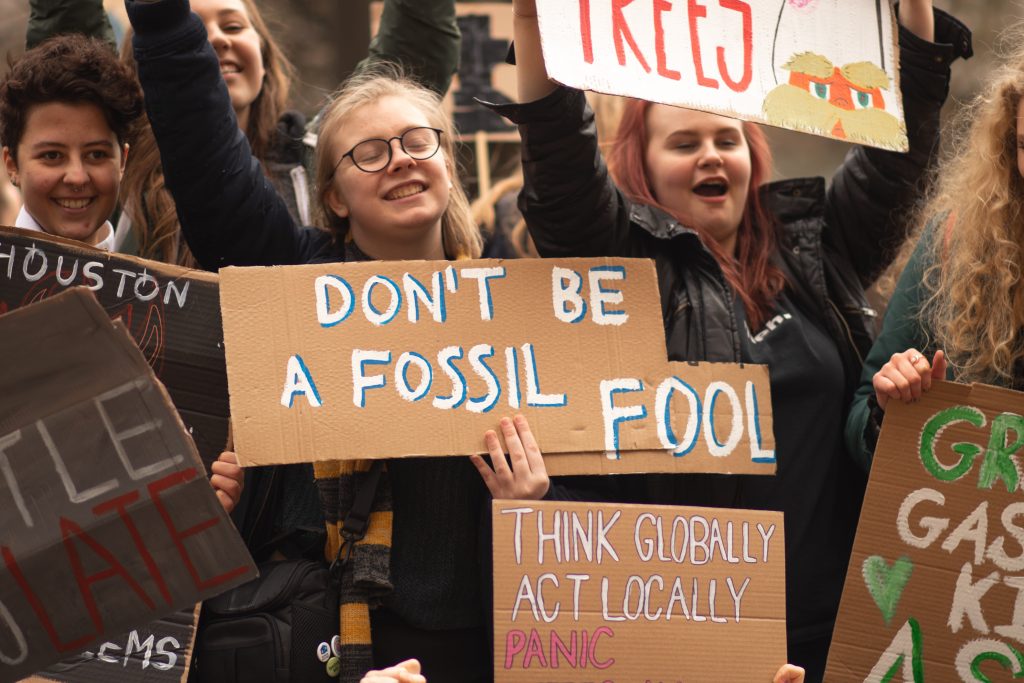
Corporations vs. Consumers: Who is really to blame for climate change?
Photo by Callum Shaw on Unsplash
By Elizabeth Oldfield
Climate change is one of the biggest threats to our world in the 21st century, with passionate activists advocating for change. Many of these changes involve increased sustainability, and encouraging consumers to buy ‘greener’ products, but this ignores the main culprit of fossil fuel emissions and climate change: corporations.
Since 1988, just 100 companies have been responsible for 71% of global greenhouse gas emissions.1 In addition to this, only 25 corporations and state-owned organisations were found to be responsible for over 50% of the global industrial emissions2 during the same time period. Due to these staggering numbers, you would think that the onus would be put on these corporations to change the way they operate. However, this has never been the case. Instead, the common solutions which aim to tackle climate change revolve around consumer choice, and changes individuals can make in their everyday lives. These include, buying green or sustainable products, using public transport or a bike, and becoming vegan or vegetarian, among many others. Whilst these changes are good to make, they do not consider those unable to make them. With green products costing almost 50% more than their ‘non-green’ alternatives3, buying them is simply out of the question for many working-class people. As well as this, many other individuals live in areas where public transport is unavailable, and travelling by bike is not possible. No one should feel pressured to make choices that are going to negatively impact their everyday lives. Assuming everyone is free to make these choices is a very privileged outlook, and one that is far too common among some environmental activists.
Corporations on the other hand can easily choose to make their products greener and more sustainable, by using alternative methods. However, the main issue here is many corporations could not care less about climate change, and instead prioritise profits. They are completely ignorant about the effects their acts have on our planet. One of the many examples of this is Exxon, a multinational gas and oil company, which was revealed to have been aware of climate change for decades. Rather than acting early on to tackle this threat, they instead led efforts to block measures that would cut emissions.4 Many advertisements, or changes to the way products are made or packaged are more likely to be done due to pressure or because the company believes they can make more profit from it, rather than it being purely due to their own concern.
Some corporations have advocated for cleaner energy through their advertisements, but how much of this is just to try to make themselves look good? Oil and gas company BP spent millions advertising their cleaner natural gas, and low-carbon energy in 2019. When in reality, over 96% of their annual funds were still being spent on oil and gas.5 Politicians are also among those who seem to advocate for change, whilst contributing to the issue themselves. After the Cop26 climate summit in Glasgow, Boris Johnson took a private jet back to London, just so he could attend a dinner.6 This is massively hypocritical, and shows the true colours of those who are supposed to be advocating for these changes. How can we believe any real change is going to be made when these are the people and corporations in power? How can the bulk of responsibility still be put on the general public?[1]
The fashion industry is another main culprit of climate change, with it being the second-biggest industrial polluter, responsible for 10% of global emissions.7 However, a lot of the time, it is the working-class consumers who lack the funds to buy from sustainable brands who are blamed, rather than the companies who are at fault. Many sustainable clothing brands are not accessible to the majority of consumers right now. Fast fashion brands on the other hand are much more affordable, which is why most people choose to buy from them. Overconsumption is a big issue when it comes to fast fashion’s impact on the environment, but it is highly unlikely to be working-class people who are contributing to this. Instead, it is more likely to be those who can afford to buy from elsewhere. These two types of consumers should not be grouped together.
Corporations must take accountability for their large part in the climate change crisis. They are responsible for the state our planet is in, and until they acknowledge that, no real change can be made.

0 Comments